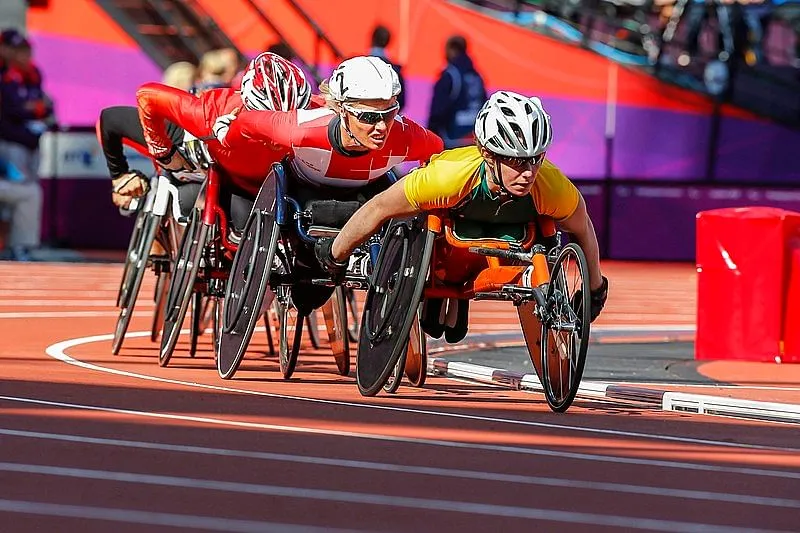BY JANIB MUHAMMAD WANI
Disability is a socially constructed term that reflects an error in the thinking process of the society. The society considers a person to be disabled just because he or she requires a wheel-chair and a ramp to move around or a hearing-aid to hear.
Our society doubts the hidden capability of a disabled person just as a pillion rider doubts the capability of a person (with no disability) driving a bike or car for the first time. Disability lies more in the mind and less in the body.
Disabled people live within a disabling world. If serious efforts are not made, many a Stephen Hawking and Louis Braille may go unidentified and unrecognized to the humble graves.
While googling, I felt happy to see the doodle about Paralympics, and as I switched to Paralympics YouTube Channel, seeing the exemplary performance by persons with disabilities in previous events added color to this feeling. Paralympics are a periodic series of international multi-sport events involving athletes with a range of disabilities. There are Winter and Summer Paralympic Games, which since the 1988 Summer Olympics in Seoul, South Korea, are held almost immediately following the respective Olympic Games. The 2020 Summer Paralympics branded as Tokyo 2020 Paralympic Games are an upcoming major international multi-sport parasports event governed by the International Paralympic Committee scheduled as the 16th Summer Paralympic Games, they are scheduled to be held in Tokyo, Japan between 24 August and 5 September 2021. United Nations 2030 Agenda for Sustainable Development “Transforming Our World” declares that “Sport is an important enabler of sustainable development. It contributes to the empowerment of women and young people, individuals and communities as well as to health, education and social inclusion objectives”.
The Motto of Paralympics “spirit in motion” is really inspirational as it inculcates the values of courage, determination and equality within the persons with disabilities. While the Olympic Games have experienced tremendous growth in global media coverage since the 1984 Summer Olympics, the Paralympics have been unable to maintain a consistent international media presence. A 2010 study by the University of British Columbia (UBC) on the Olympic Games Impact (OGI), showed that Paralympics triggered additional accessibility of buildings, sidewalks and public spaces in Canada. 23 percent of employers said the Games had increased their willingness to hire people with disabilities. Chief Executive Officer for the International Paralympic Committee, Xavier Gonzalez, said about the 2008 Summer Paralympics in Beijing, China, that—-In China, the (Paralympic) Games were really a transformation tool for changing attitudes across the board in China towards people with disability, to building accessibility facilities in the city, to changing laws to allow people with a disability to be part of society. In India, the lack of an accessible public transport system and the lack of public structures are the main impediment to full realisation of the right to participation in cultural life, recreation, leisure and sport.
The recently passed ‘The RPD Act, 2016’ has mandated that all buildings (including those owned by the private sector and are for public use) should be made accessible as per standards. The Act has also provided for the Government to take steps for ensuring access to roads, accessibility in the various modes of transportation, that all content be available in accessible formats, access to electronic media, that electronic goods and consumer goods be made available in universal design and so on. Detailed suggestions were given to Bureau of Indian standards for universalizing National Building Code (NBC). The final updated version has still not been released. The Government has put forth an ambitious plan to build 100 smart cities. The blueprint includes the creation of walkable localities, efficient and smart transportation, e-governance, housing and so on. However, accessibility for people with disabilities has not been mentioned at all in the plan/guidelines. If this is not stated explicitly, it is very likely that it would be missed. The RPD Act needs to be implemented with letter and spirit.
Society has to change its mindset towards the disabled people as the disability discourse shifted from Medical to Social Model and from Social Model to Human Development Model of Disability, based on Amartya Sens’s Capability Approach. The people should be made to realize that rehabilitation is the best practical demonstration of one’s faith in his fellow beings. Government efforts to promote international cooperation needs to be strengthened, particularly in the areas of technology, capacity building and research. Certain long term bilateral and multilateral programs should be planned and executed. In order to change public attitudes towards disability, we should celebrate the excellence of Paralympic sport and integrate Paralympics with Olympics so as to foster the value of inclusiveness.
The author is pursuing PhD from department of political science, university of Kashmir working on Disability rights . Most importantly the author himself is specially abled person.






